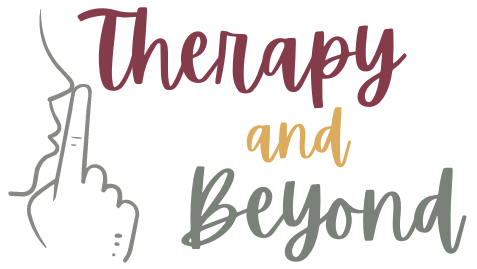Frequently Asked Questions
Fees
* based on the clinician’s experience, qualifications and specialisations
Others
-
Bundle Sessions 15% OFF/Session
8 to 10 sessions (Applicable to Regular Clients)
-
Psychological Evaluations Case by Case
Neurodevelopmental Disorders (ADHD/ASD) / Specific Learning Difficulties (SpLD) (e.g. Dyslexia) / PTSD / PD / Others
-
EAP / Corporate / Insurance Case by Case
Ranging from ($120/h - $200/h) Please contact us for more information.
- For your initial appointment, we may kindly request you arrive a 15mins earlier to complete any necessary paperwork if you haven't already done so. It's perfectly natural to feel nervous or uncertain about therapy. Rest assured, our team is here to provide unwavering support and guidance every step of the way. We'll ensure a smooth start and establish a comfortable atmosphere for you.
- During the first (intake) session, we may start off with a friendly conversation, where we might some questions to better understand what you are going through. We may probe at understanding your background and pertinent history. Additionally, we may also familiarize you some confidentiality policies or session frequency.
- Feeling anxious is common, but trust us to guide you through. We're a team of professionals dedicated to your goals, ensuring a smooth start.
- During the first session, expect questions to understand your background. We'll explain our services and encourage bringing a supportive person if it helps. Together, we'll develop a treatment plan tailored to your needs, fostering a collaborative approach.
- Psychotherapy/counselling, offered in individual, family, or group settings, addresses various mental health challenges. If you believe having a trusted individual accompany you, whether it's a parent, spouse, relative, or friend, would enhance your experience, please feel free to bring them along. We want to ensure your visit feels welcoming!
- Once we've gathered a comprehensive understanding of your background, we'll provide recommendations tailored to your specific needs, whether it involves further assessment, therapy, or a referral to another professional better suited to address your concerns. Collaboratively, we'll develop a treatment plan, as your active involvement in goal-setting is crucial for achieving successful outcomes.
- By the end of your initial session, your counsellor or psychologist may also offer immediate actionable suggestions to kickstart your journey towards self-growth.
In therapy, there's no cookie-cutter approach! We believe in blending various therapeutic methods to create a personalized experience just for you. Our approach is all about flexibility and fun. Your psychologist will collaborate closely with you to craft the ideal therapy plan. While they'll offer expert guidance, your input is always valued. Let's make therapy uniquely tailored and enjoyable together!
It's important to note that seeing a therapist isn't limited to those with mental health disorders. People consult therapist for diverse reasons. Some may seek therapy to explore potential disorders or address challenges affecting their quality of life. Others pursue therapy as a means to enhance their overall well-being or embark on a journey toward personal growth and self-improvement.
The number of sessions you'll need is as unique as you are. It hinges on your personal needs, dedication to therapy, and a range of other factors like available resources and any unexpected challenges that arise. Your therapist will team up with you to evaluate what's best, ensuring you get the right amount of support. Together, we'll navigate your therapy journey and determine the perfect session frequency/schedule for you.
- Cognitive Behavioral Therapy (CBT) is a widely practiced and highly effective form of psychotherapy that focuses on the connection between thoughts, feelings, and behaviors. It operates on the principle that our thoughts influence our emotions and actions, and by identifying and changing negative thought patterns, individuals can improve their emotional well-being and behavior.
- CBT is structured, goal-oriented, and typically involves collaboration between the therapist and client. It aims to help individuals develop practical skills to cope with challenging situations and manage symptoms of various mental health conditions, such as depression, anxiety disorders, PTSD, OCD, and more.
- Through CBT, clients learn to recognize and challenge distorted or irrational thoughts and beliefs, replace them with more balanced and constructive ones, and develop effective problem-solving and coping strategies. It often incorporates behavioral techniques, such as exposure therapy and behavioral experiments, to help clients confront and overcome their fears or avoidance behaviors.
- Picture this: you and your therapist as a dynamic duo, working together to tackle challenges head-on and rewrite the script of your mind. With CBT, you'll learn some seriously cool tricks to challenge those sneaky negative thoughts and replace them with empowering, uplifting ones.
- But that's not all! CBT is packed with fun activities and exercises designed to supercharge your emotional resilience and equip you with the tools to handle whatever life throws your way. From slaying the dragons of anxiety to banishing the blues of depression, CBT is your trusty sidekick on the path to mental wellness.
- So, if you're ready to embark on this epic adventure of self-discovery and transformation, grab your cape and join us in the exciting world of Cognitive Behavioral Therapy!
- Assessment: Psychologists/Counsellors begin by conducting an initial assessment to understand the client's presenting issues, history, strengths, and goals. This may involve interviews, questionnaires, and psychological testing to gather relevant information.
- Establishing rapport: Building a trusting and supportive therapeutic relationship is essential. Psychologists create a safe and empathetic environment where clients feel comfortable expressing their thoughts and emotions.
- Treatment planning: Based on the assessment findings and client's goals, therapist collaboratively develop a treatment plan tailored to the individual's needs. This plan outlines the therapeutic goals, objectives, and strategies to be used during therapy.
- Selecting therapeutic approach: Counsellors draw from a range of therapeutic modalities and techniques, such as cognitive-behavioral therapy (CBT), psychodynamic therapy, humanistic therapy, mindfulness-based approaches, and more. The chosen approach depends on the client's concerns, preferences, and therapeutic goals.
- Implementation of interventions: During therapy sessions, psychologists guide clients through interventions aimed at addressing their specific issues. This may involve exploring thought patterns and beliefs, learning coping skills, practicing relaxation techniques, improving communication, processing emotions, and more.
- Monitoring progress: Psychologists/Counsellors regularly assess and monitor the client's progress throughout therapy. They may use outcome measures, feedback from the client, and ongoing assessment to track changes and adjust the treatment plan as needed.
- Homework and skill-building: Clients may be assigned homework or practice exercises between sessions to reinforce learning and apply therapeutic skills in real-life situations. This promotes ongoing growth and progress outside of the therapy room.
- Termination and follow-up: As therapy progresses and goals are achieved, psychologists collaboratively review progress with clients and discuss plans for termination or transition. Follow-up sessions or aftercare plans may be recommended to maintain gains and prevent relapse.
Our Payment Methods:
- Cash
- NETS/Flash Pay
- Debit Card (Visa or MasterCard)
- Bank Transfer/Paynow
- Account Name: THERAPYANDBEYOND
- Account Type: UOB Business Account
- Paynow (UEN): 53481557WTNB
- PayNow QR Code on your invoice

For further enquires, please drop us an email for further clarification:
